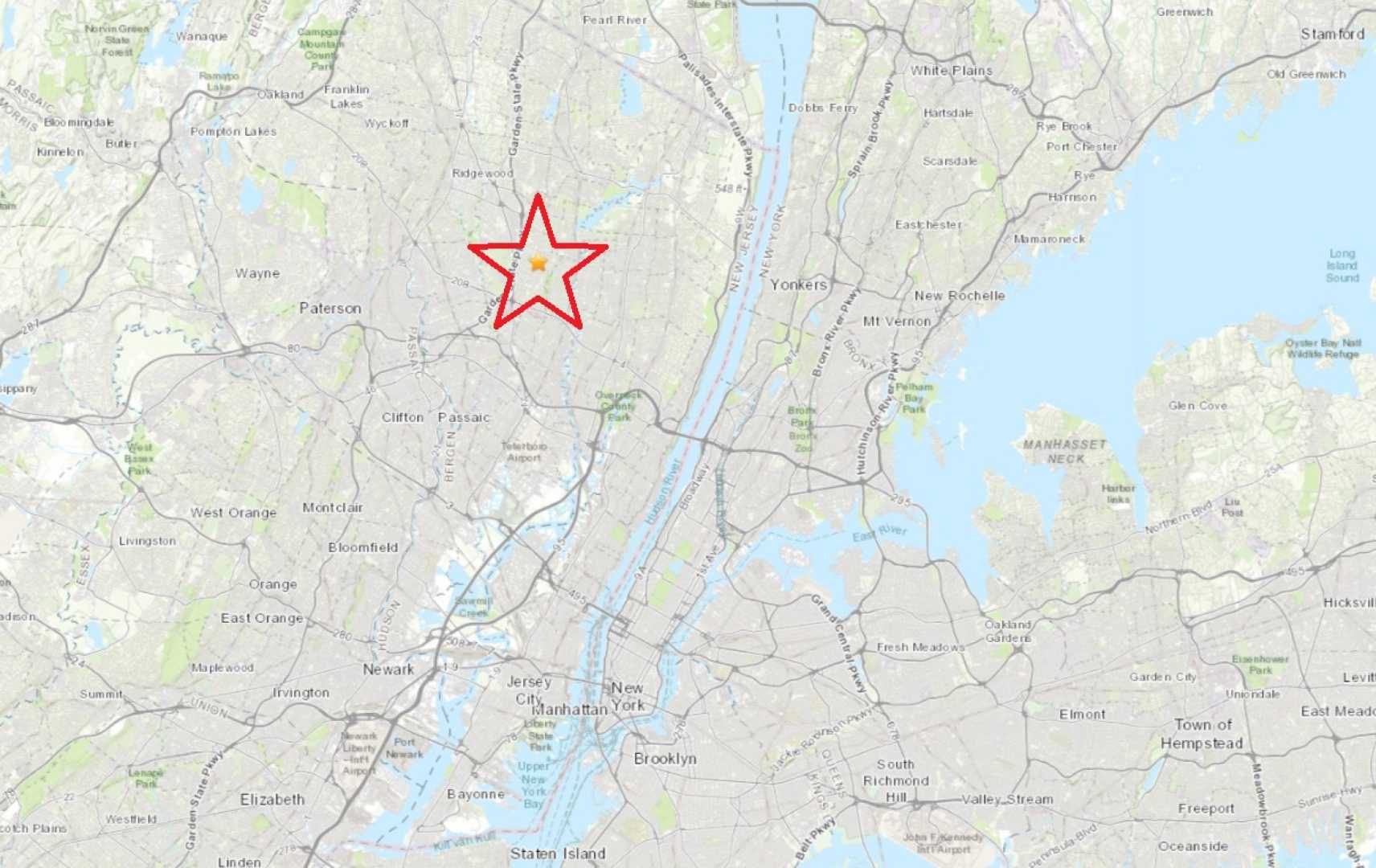News
2.4 Magnitude Earthquake Rattles New York and New Jersey

PARAMUS, N.J. — Residents in New York and New Jersey reported feeling shaking from a minor earthquake Friday afternoon. The magnitude 2.4 quake struck just after 1 p.m. local time and was centered just a mile outside of Paramus, New Jersey, according to the U.S. Geological Survey (USGS).
“I thought it was a large truck passing by, but then my neighbors started texting each other, sharing reports via Ring cameras and Bergen County Facebook groups,” said Carmen Molina, a weather.com staffer and Bergen County resident. Molina lives about 20 minutes from the epicenter.
Paramus is approximately 17 miles north of New York City. The quake had a depth of just under 5 miles, the USGS reported. There were no initial reports of damage, though some residents described hearing or feeling rattling.
“Did anyone just hear a loud boom that shook their entire house?” one resident asked on The Bergen County Mom Facebook page. Multiple others replied they felt it, too, in nearby New Jersey communities like Rochelle Park, New Milford, and Westwood.
Earthquakes are uncommon in the region but not unheard of. “Quakes are not common in this area, but they do happen and can be quite strong,” said weather.com meteorologist and natural disasters expert Orelon Sidney. “April 2024 saw a 4.8 magnitude quake that was felt in NYC.”
Sidney also noted that the Northeast’s geological history may play a role in seismic activity. “Parts of the Northeast were once covered by glaciers, and some thinking is that the ground is rebounding from the weight of those now-melted ice sheets. It’s the glacial rebound theory,” she explained.
Friday’s quake comes just nine months after a 4.8 magnitude earthquake, the strongest in New Jersey in 240 years. Scientists have theorized that the region’s geological composition may explain why quakes in the East are felt over a wider area compared to the West Coast.
Seismologists say that while low-magnitude quakes may feel routine to those in the West, they are more noticeable in the East due to differences in ground composition. “Mountains in the West are constantly being pushed up, leading to crushed rocks that don’t transmit seismic energy as easily as more condensed, less seismically-disturbed ground in the East,” one expert explained. “So, an earthquake of the same size in the East will be felt over a much wider area than in the West.”












